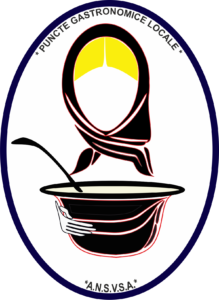In 2019 Romania adopted a new set of measures facilitating the promotion of local products and enabling farmers to set Local Gastronomic Points on their lands. The package aims at encouraging rural development as well as rural tourism.
What are Local Gastronomic Points?
The new Legislative and Tax Framework of Local Gastronomic Points communicated in February by the Romanian Ministry of agriculture and rural development, aims at promoting rural tourism and regional gastronomy, as part of cultural heritage. The concept of Local Gastronomic Points meets the increasing demand in Romania, especially in the Danube delta region, for facility-type catering units with regional products from the many geographical areas of the country. The concept, initiated in 2017 by the Ivan Patzaichin – Mila 23 Association, a Romanian eco-tourism association, has been supported by the Romanian National Sanitary Veterinary and Food Safety Authority (ANSVSA) and the Romanian Ministry of Agriculture and Rural Development.
The idea came out of a public consultation. It was spotted that rural farms need to carry out restauration activities which would not only be profitable but would also promote farmers’ territory and identity. Before the adoption of the law, small farmers willing to provide food at the farm for tourists or inhabitants had to be officially registered as a restaurant. The administrative process was discouraging to many of them, as it required administrative approvals and implied important investments and taxes.
The adopted measures allow farmers to open their kitchen without having to register as a proper restaurant since they can now register as a “Local Gastronomic Point” and use the national logo. To do so, farmers must fulfill the following conditions:
- be registered at the National Sanitary, Veterinary and Food Safety Authority in the conditions provided by Order no. 111/2008
- be organized as a legal entity (Authorized Person, Individual Enterprise, Family Enterprise or Company)
- be registered on the National Trade Registry and at the Tax Administration

As in case of the restaurants, the owners of Local Gastronomic Points must respect agreed hygiene rules and conditions. Meals will, for instance, have to be prepared and consumed on the same day. The difference with restaurant, however, lies in the offer’s scope. While restaurants can propose the food they want, these gourmet points can offer a daily menu with a limited number of assortments, including at most 2 types of soups, 2 main dishes and 2 desserts. Moreover, proposed meals must be specific to the region and their preparation must follow traditional methods using raw material produced locally.
A new tool to promote mountain products?
Local Gastronomic Points thus differ from restaurants and are not seeking to substitute them. At the same time, they offer a solution for family farmers willing to promote cultural gastronomic heritage. This measure is a new rural development tool for the Danube region, promoting sustainable mountain tourism together with mountain agriculture and food production, in areas where tourism offices are underdeveloped. Moreover, as the Ministry clearly mentions, these Gastronomic Points should only propose “culinary preparations specific to the traditional area certified in quality schemes (eg PGI, DOP, STG), organic certificates, geographical indication, mountain product, certification mark, collective mark”. In addition to the recent national “mountain product” logo that Romania adopted in February 2019, this new measure can thus be an additional useful promotion tool for Romanian mountain gastronomic heritage.
Local Gastronomic Points however do not only encourage the promotion of mountain quality foods. The Romanian initiative is indeed reminiscent of the multifunctional farming concept, within which mountain farmers can develop tourism and products tasting activities in addition to their agricultural ones. These new Local Gastronomic Points can thus serve as another channel to further promote mountain products but also to encourage mountain rural sustainable tourism.
Measures on Local Gastronomic Points comes at a moment where more projects are willing to boost mountain development through culinary heritage’s promotion, as it is the case of the AlpFoodWay project or of the branding of Valdres products in Norway for instance. But Romanian Local Gastronomic Points are going further by offering a legal framework for on-farm mountain products catering. It moreover matches the recommendations Euromontana’s members formulated in the declaration of Vatra Dornei, “Cultural heritage: an asset rooted in the territory synonymous with attractiveness and the future for our mountains!”. During the last European Mountain Convention in 2018, mountain organizations from all Europe indeed advocated for a “better support to collective mountain projects linked to the protection and enhancement of cultural heritage (e.g. mountain products) in order to strengthen the structure of resilient supply chain”.
If you are interested in Local Gastronomic Points and want to get inspired to design a similar framework in your Member State, please read the practice guide dedicated to farmers, giving more detailed information on conditions to set up such on-farm catering points.
22 May 2019









